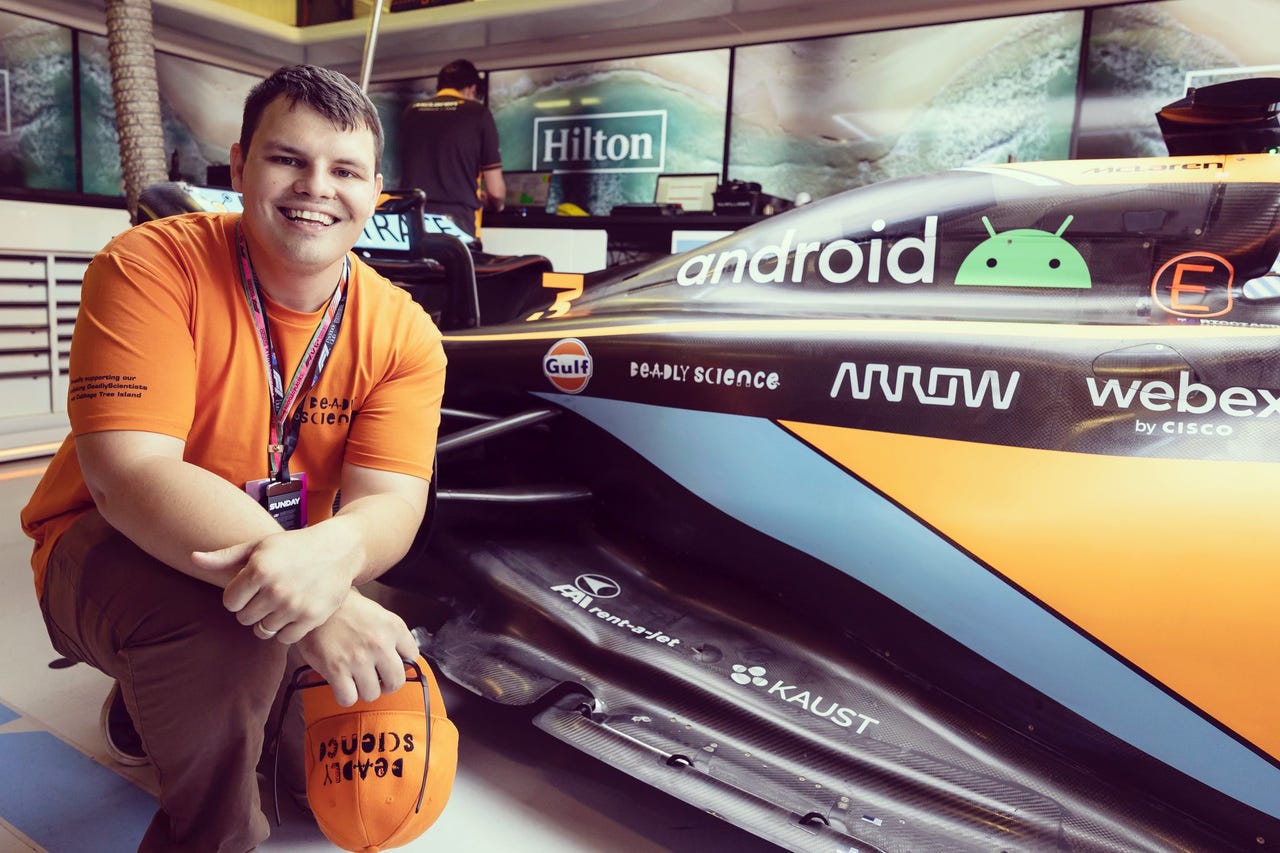Unpacking the STEM gap for Australia's remote Indigenous communities


DeadlyScience founder Corey Tutt standing next to McLaren's F1 car.
Over the weekend at the Australian Grand Prix, local STEM charity organisation DeadlyScience's logo was plastered on McLaren's F1 cars to provide awareness about the STEM gap experienced by Indigenous children living in remote Australia. DeadlyScience is a charity that provides STEM resources to over 220 remote Australian indigenous communities, with the hope of getting more Indigenous children into STEM pathways.
Speaking with ZDNet, the organisation's CEO, Corey Tutt, unpacked the severity of the STEM gap experienced by remote Indigenous communities in Australia.
Tutt, a Gamilaraay man and NSW Young Australian of the Year in 2019, explained that remote Indigenous communities are not encouraged to focus on STEM and lack the basic resources that are commonly available in urban communities.
"Resources as basic as Lego, technology books, and telescopes are not available in most of these communities," Tutt told ZDNet.
"We need the funding to be able to provide the staff to go out there and teach the science and provide, again, the resources and opportunities to the young ones. As it currently stands, there is no real funding for that as it's not as valued as literacy, which is wrong because I think STEM is just as important."
The decision to put DeadlyScience's logo onto the race cars was made by Smartsheet, one of McLaren's sponsors, who chose to donate its ad space on the car to a worthy cause. The DeadlyScience logo was originally only going to feature on the side of the car, but McLaren also decided to add it to the halo as well -- the safety ring around the driver's head which also displays sponsorship.
In addition to donating its sponsor space, SmartSheet is also providing pro bono consultancy advice and its software to DeadlyScience.
From Smartsheet's point of view, the company's CEO Mark Mader said the authenticity of a corporate's values are backed by action, which meant the company wanted to follow through and empower change by establishing outreach programs, such as the one it has with DeadlyScience.
Unpacking Smartsheet's partnership with DeadlyScience, Mader said his company donated its F1 sponsor space as he believed this is how his company could generate maximum impact. The company currently sponsors the Special Olympics, ice hockey team Seattle Kraken, yachtswoman Pip Hare, and McLaren. Of these, Mader said McLaren is its biggest platform for providing awareness.
"It was quite important for us to choose, if we wanted to have maximum impact, choose the thing that has the largest scope. And that was the one out of our portfolio, whether it's Special Olympics, or Pip Hare or the Seattle Kraken, this was the big daddy," Mader said.
With more funding from established corporations, Tutt hopes DeadlyScience can eventually move from providing the basics to more advanced resources such as cameras, drones, and 3D printers so that Indigenous children can see the potential of STEM and the opportunities it can provide.
Over the past few weeks, DeadlyScience received its largest donation yet. The donation will see seven and a half tonnes worth of Lego sent out to remote Indigenous communities.
While the donation is encouraging, Tutt said it's just the start of a long road, with the STEM champion hoping his charity can serve as a model for more people to create similar organisations and for other corporations to help out.
"It's really important that these organisations are successful so that other people are encouraged to start their own forms of DeadlyScience so that we can start solving these problems holistically," Tutt said.
Related Coverage
Indigenous businesses gain AU$188m in IT contracts through DTA marketplaces
The Australian government has boasted through its Indigenous Procurement Policy that almost 600 IT contracts have been awarded to Indigenous SMEs.
An Indigenous-owned organisation is putting First Nations people on the radar
The Centre for Appropriate Technology was forced to get creative after government funding was cut.
Willyama's role in helping Indigenous Australians secure a career in cybersecurity
The company also has its sight set on becoming the first 100% Aboriginal-owned IT company to list on the ASX.
Dion Devow's mission to help bridge the gap between Indigenous Australians and IT
The entrepreneur is living proof it's possible to be in tech, without needing technical knowledge.